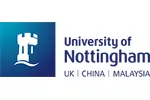

| The award | How you will study | Study duration | Course start | Domestic course fees | International course fees |
|---|---|---|---|---|---|
| MA | Full-time, Part-time | 12 month | September | - | - |
The School of English Studies is renowned for the excellence of its research and teaching in all areas of English Literature, from the Medieval period to the contemporary.
This programme blends compulsory elements to enable you to extend and develop your research skills and explore research issues - such as the nature of archival study, genre and textuality, the relationship between print and manuscript, interdisciplinary, and questions of cultural and political context - and an optional element that enables you to specialise in a specific period.
This optional element is achieved through one of three pathways, which give you the opportunity to specialise in a particular field of literary study - these pathways are:
Authors and areas to be studied on these team-taught period-specific modules may include: early modern drama, including Shakespeare and Jonson; John Donne, John Milton, Katherine Phillips and seventeenth-century poetry; Daniel Defoe, Jane Austen and the novel; Lord Byron and Romantic poetry; Oscar Wilde and Victorian and fin-de-siccle literature; James Joyce, Virginia Woolf, and Modernism; D.H. Lawrence and regional literature; and a range of contemporary poets and novelists, such as Ian McEwan, Paul Muldoon, Alice Oswald, and Derek Walcott.
Key facts
Course Content
As well as receiving research skills training as part of the degree, you will have the opportunity to explore a diverse range of literary genres and to investigate textual and critical issues involved in the study of literature in their cultural and historical context.
Topics covered will include: questions of genre; establishing and challenging a literary canon; the idea of the archive; notions of orality and performance; the relationship between manuscript and print cultures; editorial practice and politics.
Full details about the content of the MA in English Literature is available on the School of English Studies website. Students may pursue one of the following pathways through the MA course:
Please note that all module details are subject to change.
The dissertation is a major piece of advanced independent research, which you will undertake with the supervision of a specialist in your chosen area.
We will provide you with advice and guidance while you select and refine your chosen area of study. You will be assigned a tutor to supervise your dissertation and offer support as you complete your research for the dissertation and the MA.
Course Structure
This course can be taken over 1 year, full-time (September to September) or part-time over 2 to 3 years.
The MA consists of taught modules totalling 120 credits (which are taken during the autumn and spring semesters) and a 60-credit dissertation module (undertaken over the summer period).
Full-time students normally take 60 credits of taught modules in each semester; part-time students normally take 30 credits.
All modules will be team-taught by a range of experts in the field. You will also be assigned an individual supervisor for your independent dissertation project.
All taught modules are assessed by written work of between 3,000 words (for a 15-credit module) and 6,000 words (for a 30-credit module), which is set towards the end of the semester in which the module is taught.
In the early stages of your dissertation, your supervisor will read through and comment on draft work. The dissertation itself comprises a piece of your own research, assessed by written work of 12,000-15,000 words.
Below are some suggested courses at other providers that you may also be interested in:
Academic Foundation Year - Italian Creativity and Design Foundation
IED – Istituto Europeo di Design
Find out moreEquine Performance and Rehabilitation (wFY) BSc (Hons), Foundation
Hartpury University
Find out moreIf you do not meet the entry requirements for this course then consider one of these postgraduate preparation courses from another institution:
There are 579 other courses listed from University of Nottingham. A selection of these are displayed below:
Academic English and Study Skills Preparation programmes Master's Qualifying Programme
University of Nottingham
Find out moreAdditive Manufacturing and 3D printing (Centre for Doctoral Training) PhD
University of Nottingham
Find out moreJoin the StudyLink email list and never miss a chance to turn your study abroad dreams into reality!

Find out more about studying in the United Kingdom